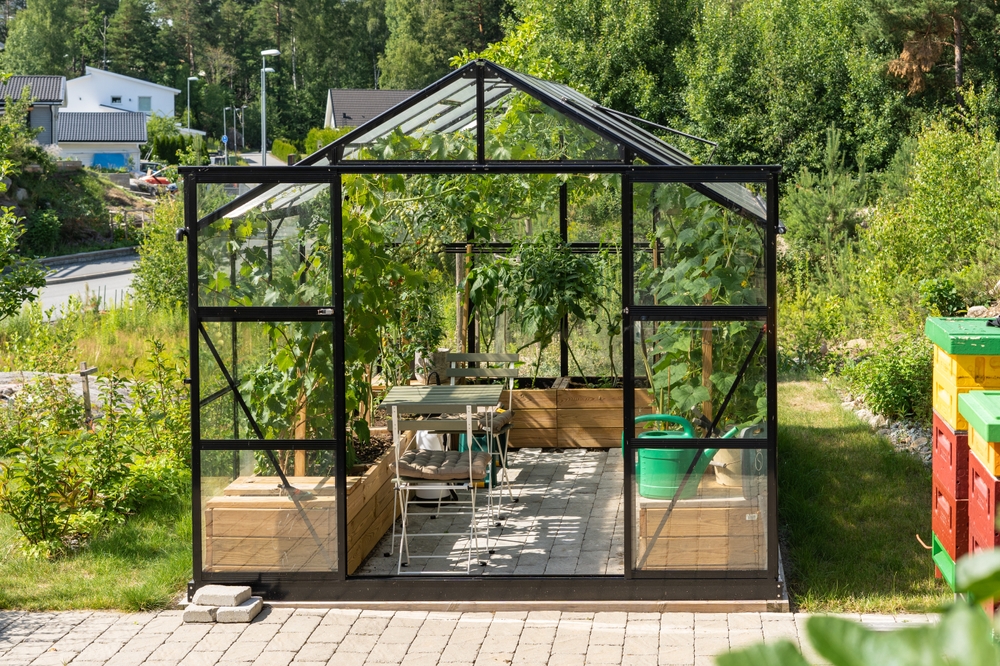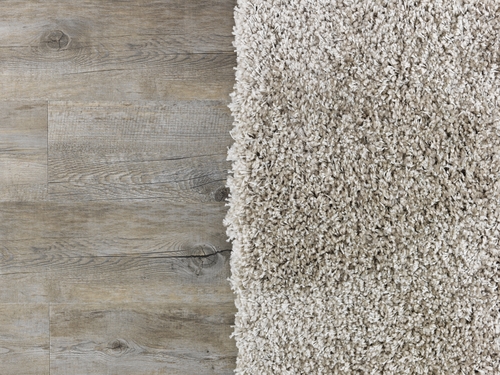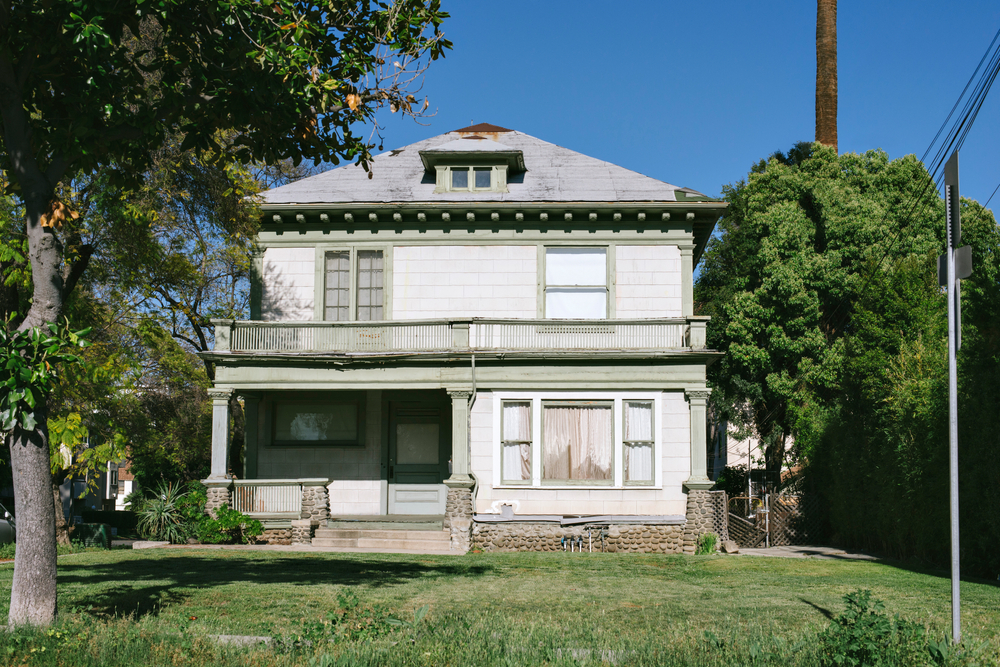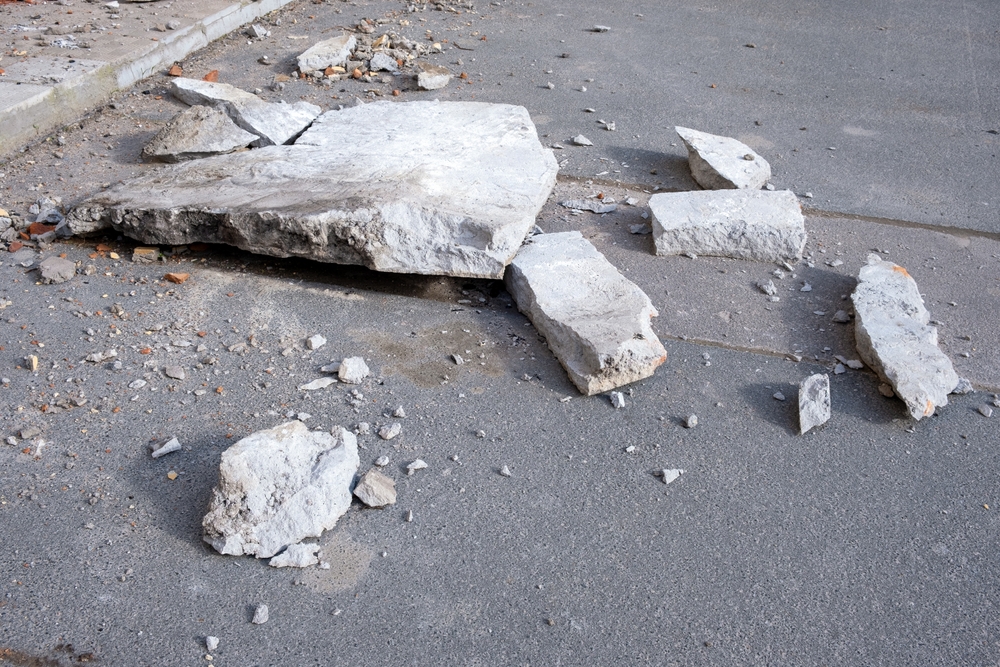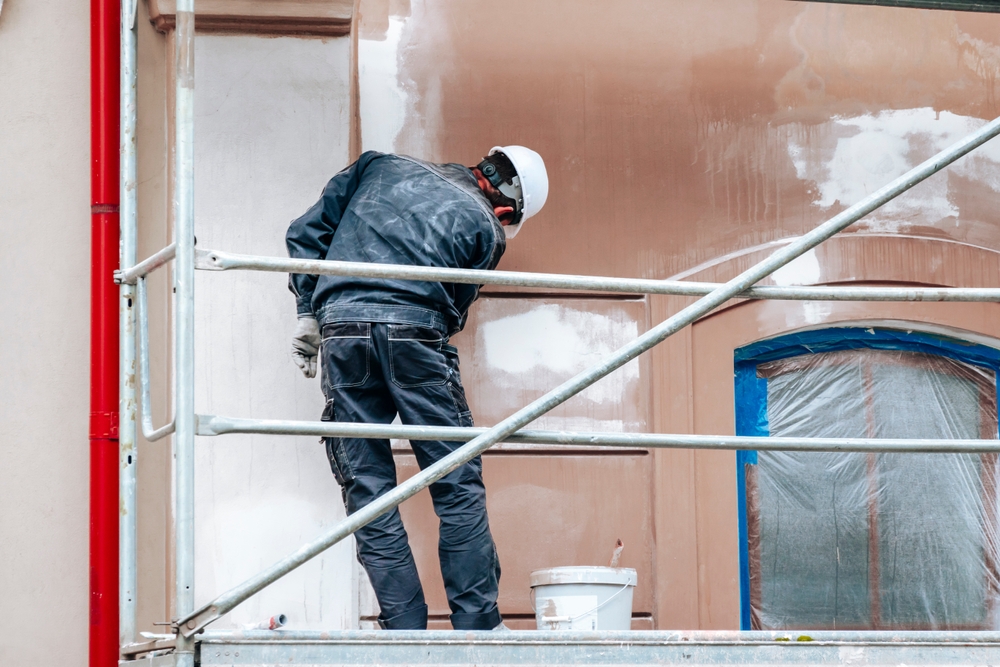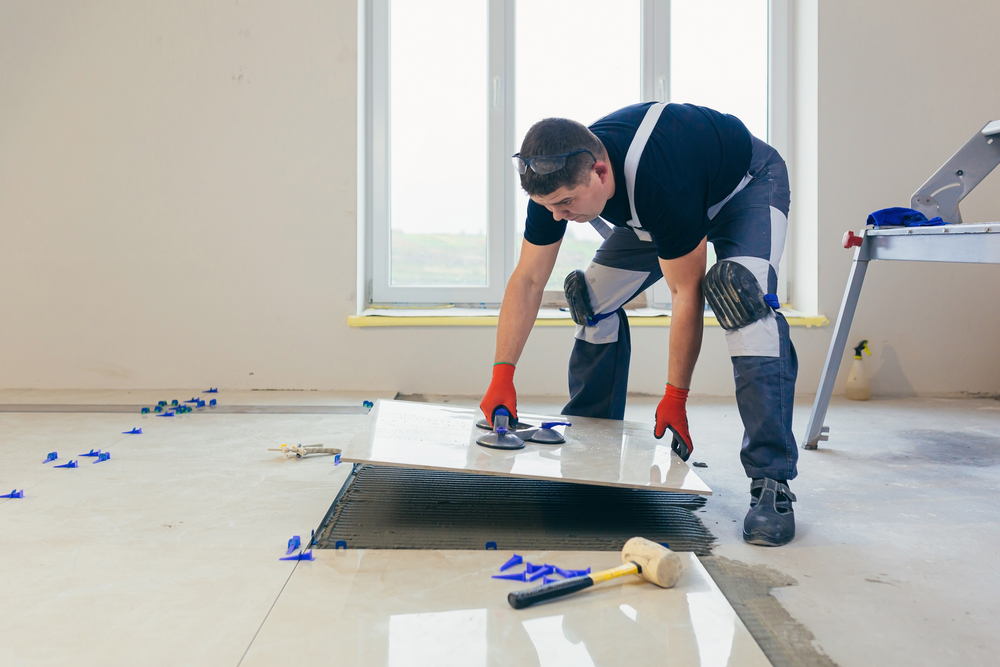March 26, 2024 - Benjamin Ehinger
Is Carpet Cheaper Than Hardwood? Cost Comparison Insights
CALL NOW 844-762-8449
When considering new flooring for your home, the decision between carpet and hardwood is a significant one. Both have their unique benefits and drawbacks, and the choice can impact not only the aesthetics of your home but also your budget. Generally, carpet is perceived as the more cost-effective option upfront. The price of carpet varies depending on the material, with options like berber carpet ranging in price quite broadly. Conversely, hardwood flooring is often seen as a more substantial investment. The cost of hardwood floors includes not only the per square foot price of the material itself but also the long-term value it may add to your home.
However, the comparison does not end at the initial purchase price. The installation process for hardwood can be pricier and more complex, which should be considered when evaluating total cost. Maintenance and upkeep also differ between the two, potentially affecting long-term expenses. Carpets may require more frequent cleaning, while hardwood floors need specific care to maintain their finish and durability. Additionally, the choice between carpet and hardwood can have implications beyond mere cost, affecting everything from comfort underfoot to the overall design flexibility of your living space.
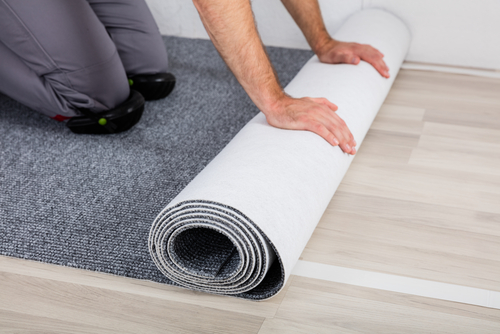 When considering new flooring, the installation process is critical. You need to evaluate whether to hire professionals or do it yourself, and understand what preparation is necessary for either carpet or hardwood flooring.
When considering new flooring, the installation process is critical. You need to evaluate whether to hire professionals or do it yourself, and understand what preparation is necessary for either carpet or hardwood flooring.
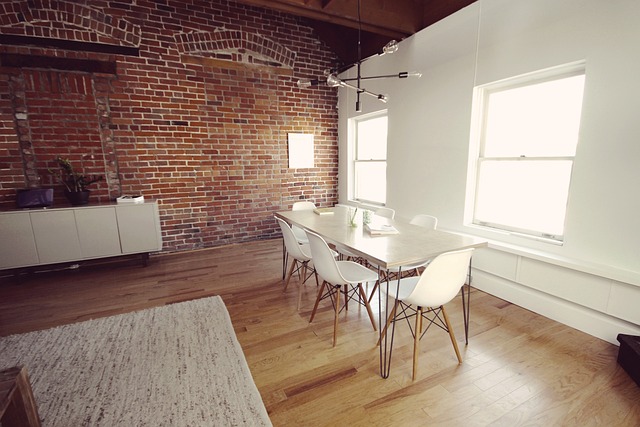 When choosing between carpet and hardwood flooring for your home, environmental factors such as humidity and heat insulation play a crucial role in how they perform over time. These factors affect the longevity and maintenance of your flooring choice.
When choosing between carpet and hardwood flooring for your home, environmental factors such as humidity and heat insulation play a crucial role in how they perform over time. These factors affect the longevity and maintenance of your flooring choice.
Key Takeaways
- Carpet often has a lower initial cost compared to hardwood flooring.
- Long-term maintenance and value-add should be considered when comparing costs.
- Personal preference in comfort and design plays a role in flooring choice.
Evaluating Costs
When considering flooring, you need to weigh the initial financial outlay against the potential for future returns. Carpet generally offers lower upfront costs, while hardwood flooring can enhance your home’s resale value.Initial Purchase and Installation Expenses
When you’re budgeting for new flooring, carpeting often emerges as a more budget-friendly choice. The carpet cost per square foot can vary from as low as $0.65 to around $20 for more premium or specialized options. The installation costs for carpet are typically lower than for hardwood because the process is less complex. Budgeting a simple carpet installation, you might find that labor costs can range from $4 to $8 per square foot. In contrast, hardwood flooring can be more expensive, both in terms of materials and installation. Standard hardwood can start at about $3 per square foot, with high-end materials reaching $15 or even $20 per square foot; installation can add an additional $3 to $5 per square foot.Long-Term Investment and Resale Value
Hardwood floors not only add warmth and character to your home but also offer a solid long-term investment. Although the initial costs are higher, hardwood flooring can raise the resale value of your home significantly, which might offset the upfront expenses over time. On the other hand, while carpet might provide immediate comfort and a lower hit to your budget, it generally does not have the same positive effect on resale value and can show signs of wear more quickly, potentially leading to more frequent replacements.Material and Style Considerations
When selecting flooring, understanding the variety of materials for both hardwood and carpet is crucial, as they directly impact the style and durability of your space. Both options offer distinct textures, colors, and patterns that can complement or define the interior design of your home.Types of Hardwood and Carpet Materials
Hardwood flooring comes in a range of wood species each with unique characteristics. Popular choices include:- Oak: Known for its durability and traditional grain patterns.
- Maple: Offers a lighter color with a subtle grain, suitable for a modern look.
- Bamboo: A sustainable choice that provides a distinctive, clean appearance.
- Pine: Features a rustic look with prominent knots and variations.
- Nylon: Offers resilience and variety in color and texture.
- Polyester: Known for its stain resistance and luxurious feel, available in numerous styles and patterns.
Aesthetics: Color, Texture, and Patterns
The aesthetics of your flooring are shaped by the choice of colors, textures, and patterns that align with your personal style:- Colors: Hardwoods range from light blondes to deep browns, whereas carpets can be found in a plethora of colors to fit any palette.
- Textures: The finish of hardwood can be smooth, hand-scraped, or distressed, and carpet may be plush, looped (like Berber), or patterned.
- Patterns: Hardwood can have patterns based on the cut and installation, such as herringbone, while carpets offer options from geometric to floral designs.
Installation Process
 When considering new flooring, the installation process is critical. You need to evaluate whether to hire professionals or do it yourself, and understand what preparation is necessary for either carpet or hardwood flooring.
When considering new flooring, the installation process is critical. You need to evaluate whether to hire professionals or do it yourself, and understand what preparation is necessary for either carpet or hardwood flooring.
Professional vs. DIY Installation
Carpet Installation: A professional carpet installation ensures a perfect fit, seamless appearance, and longevity of your carpet. Costs can range but they ensure correct padding placement and have the expertise to handle complex room layouts. Attempting a DIY installation may save you initial costs but could lead to expensive mistakes or the need for professional carpet cleaning later. Hardwood Installation: Hardwood also benefits from professional installation. Professionals account for subfloor prep, humidity issues, and proper alignment. This flooring type is less forgiving than carpet, making DIY installation risky if you’re inexperienced. Potential high-stakes errors can affect both aesthetics and functionality.Preparing for Hardwood or Carpet Installation
- Clear the Room: Empty the installation area of furniture and other items to give installers or yourself free space to work.
- Subfloor: Ensure your subfloor is clean, level, and dry. This is essential for preventing future problems like mold or uneven surfaces.
- For Carpet: The subfloor should be free of protruding nails and thoroughly vacuumed. Padding should be laid down to provide cushioning and noise reduction.
- For Hardwood: Check for any creaks or uneven spots. Use an appropriate underlayment to guard against moisture and provide a solid foundation for the wood planks.
Maintenance and Upkeep
The longevity and appearance of your flooring depend heavily on the maintenance and upkeep routines you establish. Establishing a regular cleaning schedule and responding promptly to any stains and spills are critical for both carpet and hardwood floors.Daily and Weekly Cleaning Routines
For hardwood floors, your daily routine should include:- Sweeping: This prevents dirt or grit from scratching the surface.
- Dusting: Use a microfiber mop or cloth to pick up dust particles.
- Vacuuming: Use a soft-bristled attachment to avoid scratches.
- Mopping: Only with a damp mop, as excessive water can damage the wood.
- Vacuuming: Important for removing dirt and dust trapped in the fibers.
- Deep cleaning: A professional service or a high-quality vacuum helps maintain the carpet’s plush look and feel.
Dealing with Stains and Spills
Handling stains and spills on hardwood requires quick action:- Blotting spills: Immediate blotting helps prevent water spots and warping.
- Cleaning solutions: Use manufacturer-recommended cleaners, avoiding anything abrasive.
- Blot, don’t rub: Gently blot with a clean cloth to avoid embedding the stain further into the fibers.
- Appropriate cleaners: Utilize carpet-specific cleaning solutions for different types of stains.
Durability and Lifespan
When considering flooring options for your home, understanding the durability and lifespan of your choices is crucial. Different materials can withstand varying levels of wear and tear, and their longevity can greatly affect your long-term satisfaction and costs.The Impact of Foot Traffic
Your flooring must be able to handle the everyday movement of people throughout your home. Solid hardwood flooring is known for its sturdiness and can last many decades with proper care. However, it’s not immune to scratches and may show wear in high-traffic areas over time. On the other hand, engineered hardwood, consisting of a plywood core topped with a hardwood layer, can also provide considerable durability. It’s a good option if you want the look of hardwood with some resistance to warping from moisture.Longevity and Refinishing Options
The longevity of your flooring is a key factor to consider. Solid hardwood has an impressive lifespan and can be sanded and refinished multiple times, letting you erase years of wear and giving your floors a brand new look. Typically, refinishing can be done every 7-10 years for solid hardwood, depending on the thickness of the wood. Engineered hardwood also offers a long lifespan but, due to its construction, can only be refinished a limited number of times before the top layer is compromised. Therefore, your choice may depend on how often you anticipate needing to refresh your floors.Health and Comfort
When you’re deciding between carpet and hardwood floors, consider how each flooring type can impact your comfort and health. The materials you walk on at home can affect allergen levels and have specific benefits and drawbacks.Carpet and Allergen Trapping
Carpet provides a soft and warm surface underfoot, which can be particularly comforting during colder months. However, carpets can trap allergens such as pet hair, dust, and pollen, which might exacerbate allergies if they are not cleaned regularly. If you have pets, their hair can get embedded in carpet fibers, making it more challenging to maintain an allergen-free environment.Hardwood Floors and Indoor Air Quality
In contrast, hardwood floors can be easier to clean and are often considered a more hypoallergenic option. Without the fibrous material that carpets have, hardwood floors do not trap allergens as easily, which may improve your indoor air quality. You may find that dust can be swept or vacuumed more readily, helping to reduce the presence of pet hair and dust mites in your living space.Impact of Environmental Factors
 When choosing between carpet and hardwood flooring for your home, environmental factors such as humidity and heat insulation play a crucial role in how they perform over time. These factors affect the longevity and maintenance of your flooring choice.
When choosing between carpet and hardwood flooring for your home, environmental factors such as humidity and heat insulation play a crucial role in how they perform over time. These factors affect the longevity and maintenance of your flooring choice.
Humidity and Moisture Resistance
Hardwood floors can be susceptible to water damage and changes due to humidity levels. Over time, exposure to moisture can cause wood to warp or expand, leading to potential damage. Therefore, if you live in a region with high humidity or your rooms are prone to moisture, it is essential to select hardwoods with higher moisture resistance or consider engineered wood that provides better stability. Conversely, carpets can absorb moisture, which can foster mold and mildew growth. This can be concerning, especially if you are sensitive to allergens. To combat this, it’s advised to choose carpets with moisture-resistant padding and regular professional cleaning to prevent potential health hazards.Heat Insulation and Energy Efficiency
Carpet is an excellent insulator, adding a layer of warmth to your floors. It retains heat, which means it can help keep your rooms warmer during colder months. This can contribute to lower heating costs, which adds an aspect of energy efficiency to your flooring choice. Hardwood floors, while not as insulating as carpets, still contribute to a home’s overall temperature stability. Improved installation techniques can increase their insulation ability, but typically, hardwood floors will not retain heat as effectively as carpeted floors. If you desire the look of hardwood but require additional warmth, integrating area rugs can be a suitable compromise.Practicality for Homeowners
When considering flooring options, you need to take into account not only cost but also practical aspects that affect your daily living. These include safety features, maintenance requirements, and how well the flooring adapts to changes in your lifestyle.Safety and Accessibility Considerations
For safety purposes, carpet provides a softer surface, which can be a deciding factor, especially if your household includes young children or elderly individuals. Slips and falls are less likely on carpet, and the impact is often cushioned. Additionally, for homes with accessibility needs, carpeting can sometimes make the movement of wheelchairs and walkers more challenging. In contrast, hard surfaces like laminate, vinyl, and hardwood are more durable and easier to navigate for those with mobility aids, but can present a greater risk for falls.Adaptability to Lifestyle Changes
Your flooring should be able to handle the ebb and flow of your daily life. High-traffic areas may benefit from laminate flooring or tiling due to their durability and ease of cleaning. Hardwood has the advantage of being sanded and refinished several times throughout its life, allowing it to adapt to various lifestyle and look and feel changes you may desire. On the other hand, while carpet may not lend itself to such transformations, it can be a more cost-effective choice for bringing warmth and comfort to a room. Maintenance is another factor to consider; some flooring types, like vinyl or laminate, offer minimal upkeep, while others, like carpet, will require regular cleaning to maintain their appearance.Advantages of Different Flooring Types
When you’re deciding between carpet and hardwood flooring, it’s essential to weigh the benefits of each to determine which best suits your needs. Both types offer distinct pros that can enhance your home in different ways.Pros of Carpet Flooring
Carpet is prized for its comfort and warmth underfoot, making it a cozy choice for bedrooms and living areas. Wool carpet, for example, not just provides a luxurious feel but also acts as a natural insulator, contributing to energy savings. The padding or underlay beneath the carpet adds an extra level of cushioning for comfort and can also help to reduce noise, an advantage particularly valued in multi-story homes.- Comfort: You’ll appreciate the plush softness carpet offers.
- Warmth: Especially in colder climates, carpet retains heat, offering you a warmer floor.
- Acoustics: Carpeting can dramatically reduce echo and noise levels.
- Initial Cost: When compared to hardwood, carpet often has a lower initial installation cost.
Advantages of Hardwood Floors
Hardwood floors are renowned for their longevity and timeless appeal. They can increase the value of your home and come in a variety of styles and finishes that can complement any décor. Hardwood is also known for its ease of maintenance and is often a preferred choice for those with allergies, as it does not harbor dust and allergens the same way carpets can. An area rug can be added to hardwood floors if you desire the comfort of a carpet while still maintaining the elegance and durability of hardwood.- Durability: Properly maintained hardwood floors can last for decades.
- Resale Value: Homes with hardwood floors tend to have a higher resale value.
- Variety: Hardwood comes in numerous species, colors, and finishes.
- Maintainability: Easier to clean and less prone to stains than carpet.
- Allergens: Your floor won’t trap allergens, benefiting your indoor air quality.
Design Flexibility and Customization
When choosing between carpet and hardwood, the options available for personalization and style adaptation play a significant role. From the textures and patterns to the finishes and hues, you have a myriad of choices to match your aesthetic and functional desires for each flooring type.Innovations in Carpet Styles
Carpet technology has advanced, offering you a wide range of styles and designs that cater to diverse preferences. Pile height and patterns have evolved; you can now select from high-pile shags for a luxurious feel or low-pile berbers for durability. There are also cut and loop carpets that create intricate patterns suitable for various room aesthetics. When it comes to fibers, you’ll find carpets made from nylon, polyester, wool, and more, each offering different levels of softness and stain resistance. Carpets with built-in stain-resistant technologies give you peace of mind if you’re concerned about potential spills.Customizable Finishes for Hardwood
Hardwood floors give you a different but equally versatile design palette. The choice of wood species, including both hardwoods and softwoods, along with customizable stains and finishes, allows for a myriad of appearance options. Whether you’re looking for the rich, warm tones of cherry wood or the light, airy feel of bamboo, wood floors can be tailored to suit your tastes. Not to be overlooked are the warping considerations and the type of finish, such as matte or glossy, which can affect the floor’s resilience and appearance over time. Hardwood can also be purchased pre-finished or finished on-site, the latter allowing for a higher level of personalization in terms of color and finish. Both carpet and hardwood offer extensive design flexibilities and customization opportunities, ensuring that your flooring choice can be as unique as your personal style.Frequently Asked Questions
When considering new flooring, it’s important to understand the financial and practical implications of your choice between carpet and hardwood. These FAQs will address common concerns regarding cost, effectiveness, and value.What are the cost differences between carpet and engineered hardwood flooring?
Generally, carpet has a lower up-front cost compared to engineered hardwood. However, hardwood floors often come with longer lifespans, potentially balancing out the initial investment over time.Which flooring is more cost-effective for homes with children, carpet or hardwood?
For families with children, carpet may appear more cost-effective due to lower installation costs and a softer surface for play. However, consider that hardwood might offer greater durability against spills and wear.How does the installation cost compare between carpet and hardwood for second-story floors?
Installation costs for carpet are typically less than hardwood for any floor, including second stories. The cost differences can be even more pronounced with the additional labor that hardwood installation might require on upper levels.In terms of health considerations, how do carpet and hardwood floors compare?
Hardwood floors are often considered better for indoor air quality, as they don’t trap allergens like carpets can. Frequent cleaning can mitigate this concern for carpets.Does the choice between carpet and hardwood impact home resale value?
While hardwood can raise the resale value of your home, the overall impact also depends on market trends and buyer preferences in your area.What are the preferences among homebuyers for bedroom flooring: carpet or hardwood?
Buyer preferences vary, but many appreciate the warmth and comfort of carpet in bedrooms. However, hardwood floors are often valued for their elegance and longevity.RECENT BLOGS
Our Reviews
Glenda Lanier Prowell
1721758635
I have ordered an 11 yard dumpster to be delivered to my house.Lonier was extremely helpful and answered all my questions. The rate was very reasonable.
Cedric Smikle
1721660395
Amber was extremely professional and courteous. She answered all of my questions and even some that I didn’t know I needed to ask.
Cait Kaider
1721243051
I highly recommend Waste Removal USA for their responsiveness and how the staff work hard to provide exceptional customer service. They have done well by us and our clients. Thank you!
Easom Family
1721223306
Louiner Pierre-Louis Is awesome! Did a great job. Will definitely be using this same company for all my dumpster needs because of his awesome customer service! Thank you!!!
tabitha Vazquez
1720539988
Wonderful and fast customer service!
LATEST BLOGS
